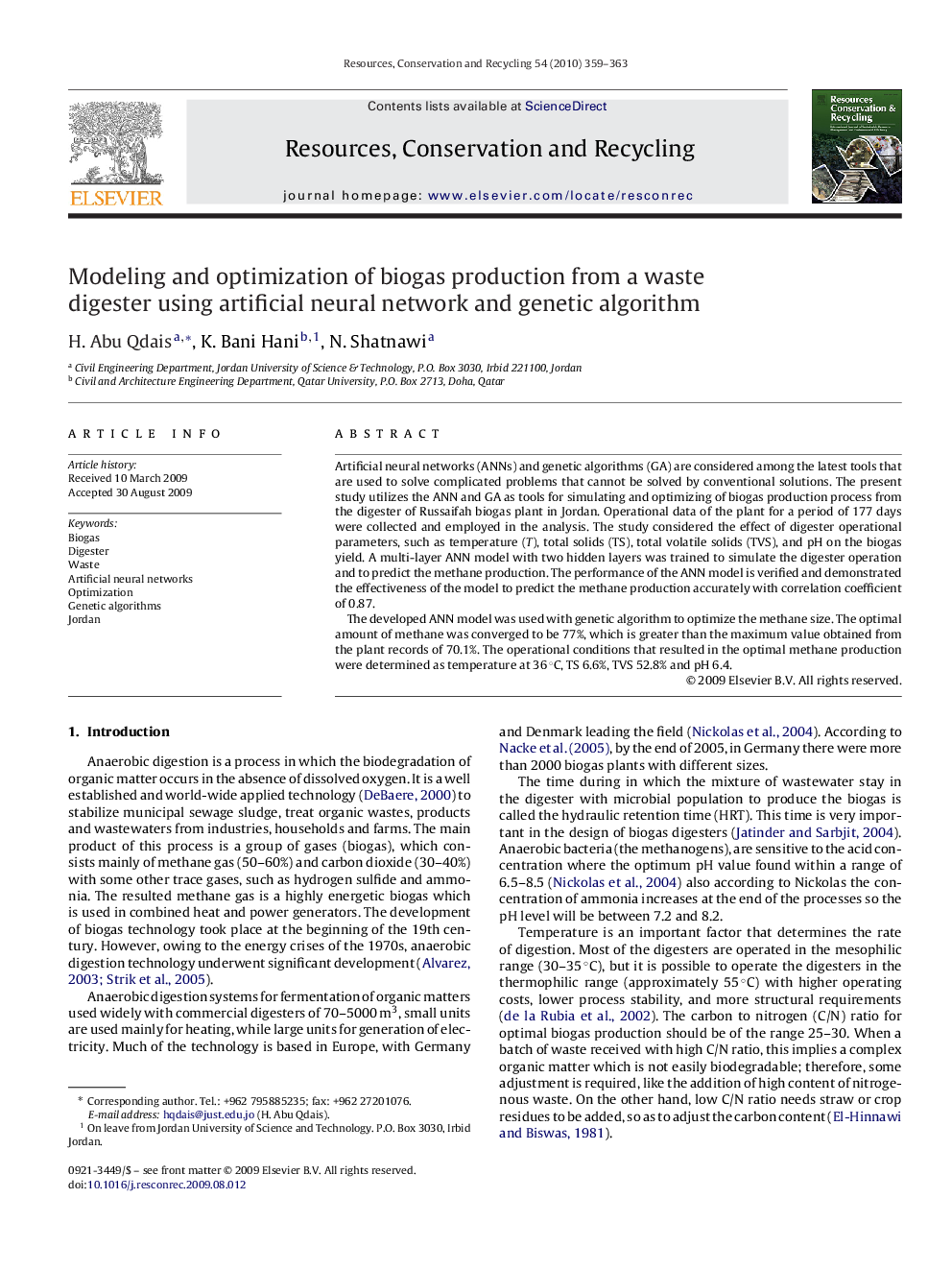| Article ID | Journal | Published Year | Pages | File Type |
|---|---|---|---|---|
| 1063745 | Resources, Conservation and Recycling | 2010 | 5 Pages |
Artificial neural networks (ANNs) and genetic algorithms (GA) are considered among the latest tools that are used to solve complicated problems that cannot be solved by conventional solutions. The present study utilizes the ANN and GA as tools for simulating and optimizing of biogas production process from the digester of Russaifah biogas plant in Jordan. Operational data of the plant for a period of 177 days were collected and employed in the analysis. The study considered the effect of digester operational parameters, such as temperature (T), total solids (TS), total volatile solids (TVS), and pH on the biogas yield. A multi-layer ANN model with two hidden layers was trained to simulate the digester operation and to predict the methane production. The performance of the ANN model is verified and demonstrated the effectiveness of the model to predict the methane production accurately with correlation coefficient of 0.87.The developed ANN model was used with genetic algorithm to optimize the methane size. The optimal amount of methane was converged to be 77%, which is greater than the maximum value obtained from the plant records of 70.1%. The operational conditions that resulted in the optimal methane production were determined as temperature at 36 °C, TS 6.6%, TVS 52.8% and pH 6.4.
